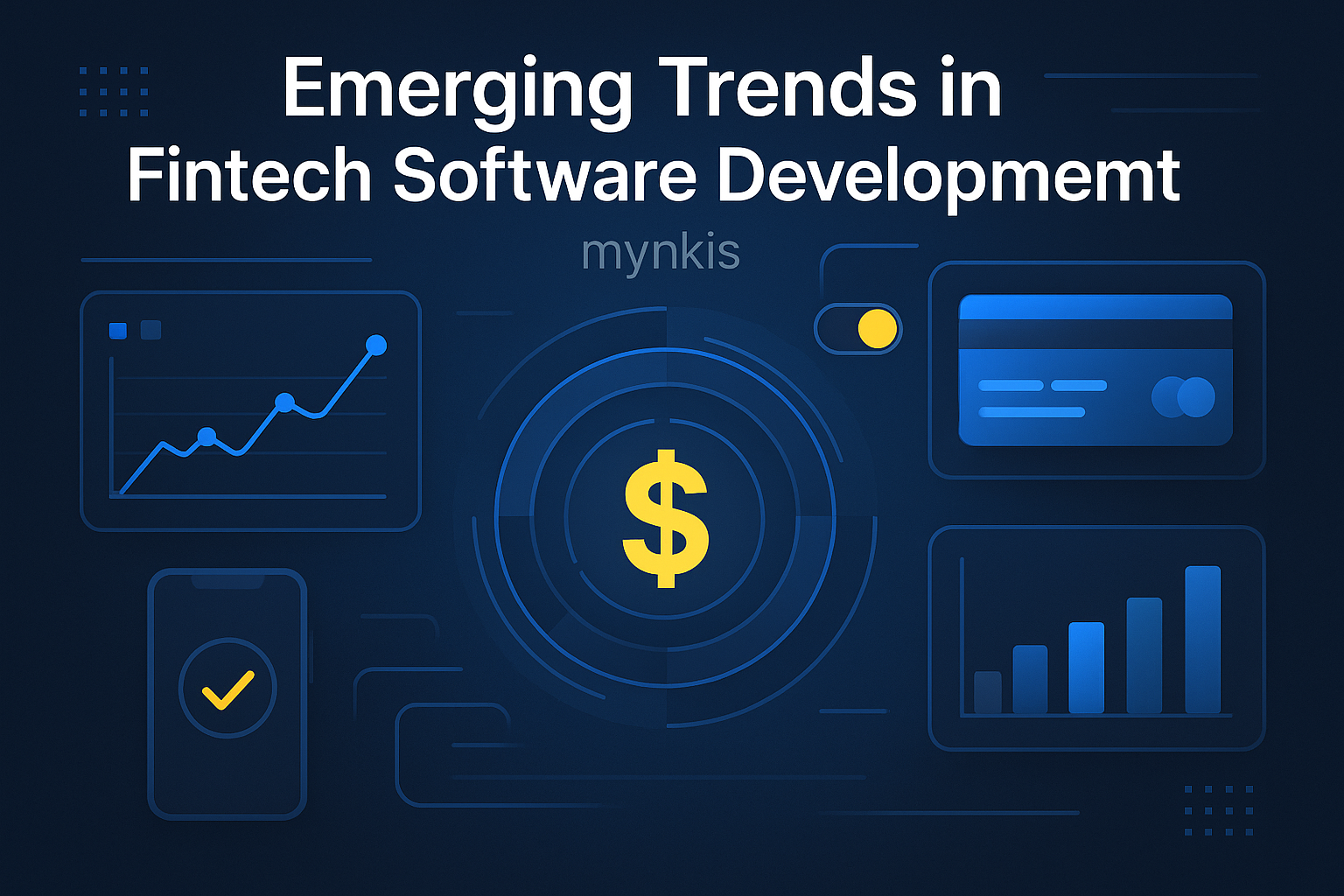Schedule a Demo
Financial technology, or fintech, is transforming how businesses and consumers manage their financial activities. I have seen firsthand how the sector's relentless innovation pace can impact enterprise-level software solutions. From enhancing user experiences to leveraging cutting-edge technologies, the trends in fintech software development are not just noteworthy—they're essential for any company touching finance to stay competitive.
Blockchain technology might sound like last decade's news, but oh boy, the advancements are anything but outdated. Cryptocurrencies may have gained consumer attention, but for enterprises, the real win in the blockchain space is in decentralized finance, known as DeFi. My work with businesses has shown me the potential of DeFi to revolutionize traditional financial services—from lending and borrowing to asset management—without the need for central intermediaries. This approach promises to lower costs and increase access to finance, trends that underscore the increasing appeal of custom software development in this space.
When talking about the intersection of AI and fintech, it's helpful to ground the discussion with a relatable scenario: Imagine an AI model instantly verifying a new client's financial trustworthiness in seconds instead of days. AI and machine learning are potent tools in fintech, propelling improvements in fraud detection, risk management, and personalized banking experiences. Companies leveraging these technologies often develop sophisticated custom software solutions to automate their financial operations, mirroring a broader industry shift toward efficiency and sophistication.
Digital wallets are not a new concept, yet the race to integrate them into daily transactions—and ultimately into users' financial lifestyles—continues unabated. These solutions necessitate highly reliable, scalable, and secure software development, as security remains paramount. In fact, during my recent chat with an executive from a fintech payments company, they emphasized their shift towards making payment operations feel as invisible as air yet secure like Fort Knox.
One of my motivations in the field of tech has been how it levels the playing field. A major goal in fintech software development today is financial inclusion, aiming to provide banking and financial services to those traditionally underserved by the system. This area sees profound developments in mobile banking applications and platforms designed to operate with minimal technological requirements, showcasing a blend of social goals with powerful enterprise web solutions.
Keeping businesses on the right side of the ever-changing regulatory landscape has long been a costly challenge for banks and fintechs. However, the way those like Accenture see the uptake of RegTech solutions, predictive of not only increased compliance efficiency but also reduced punitive risks (based on available data, outcomes may differ per case), signals a sea change. Enterprises are integrating custom software development for monitoring and reporting, aiming to bring transparency and trust back to the core of financial services.
The integration of disparate fintech services offers an exciting paradigm shift for ecosystems providing a streamlined user experience. This might look like seamless integration between budgeting tools, investment platforms, and personal finance analytics. If my predictions based on current trends hold, this convergence might redefine what an 'all-in-one' fintech platform looks like, fundamentally revolving around skillfully crafted custom software solutions.
Q: What specific trends should fintech software developers be most excited about?
A: Developers should be buzzing about blockchain's further implementation into payments and cybersecurity solutions, and the mature use of AI and machine learning for enhancing user experiences and security measures. According to recent analyses by leaders at Gartner, these aspects appear pivotal. Just like soldiers on the technical frontlines, developers steering the course through these integrations will experience dynamic shifts in their work environment—potentially an exhilarating pace.
Q: How are these developments impacting traditional financial institutions?
A: Traditional financial institutions are being nudged, or rather pushed, towards modernization by these technological waves. As per insights from FIS, many such banks have started engaging in robust partnerships with fintech startups to embed these agile, innovative services within their ecosystems. This movement could change the structure of banking itself into one that's more diverse and filled with synergistic relationships – translating fine-tuned, genuine enterprise web solutions into an inviting change.
Q: What can we do to ensure financial technology remains trustworthy?
A: Sustainability in trust can be anchored in rigorous ethical coding standards, proactive cybersecurity education, and transparent consumer disclosures. As advocated by McKinsey, postulating reinforcement for these arenas holds the key to preserving public faith. Deploying collaborative safeguards, shaped by real stakeholder input, is also critical—elements that don exponentially to the accountability and pristine reputation of custom software development projects.
Finance at the enterprise level has become a game where continuous learning meets agile execution. As tech propels fintech forward, everyone from practices and mid-sized businesses to top-tier S&P 500s operates with one eye on emerging trends. Achieving an aesthetic, highly functional digital platform demands commitment to understanding these trends, fostering financially empowered nations, and netting access to innovative, future-forward custom software development services.
